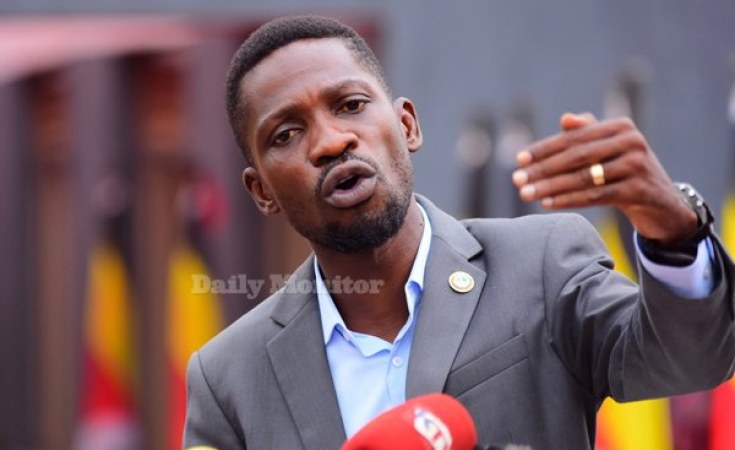Robert Kyagulanyi, the leader of the National Unity Platform (NUP), also known as Bobi Wine, has President Museveni's reaction to the World Bank's suspension of loans to Uganda reflects a clear indication of his ideological disorientation and policy nomadism.
President Museveni recently downplayed the significance of World Bank loans and aid packages in the development of African countries, suggesting that they can easily do without them without any adverse consequences.
Museveni argued that the funds extended to African nations in the form of loans or aid have often failed to serve their intended purpose, thereby questioning their importance.
"If foreign aid and loans are meant to bring about social and economic transformation, then why do we witness a growing crisis of security and stability in Africa? Look at countries like Guinea-Conakry, Mali, Burkina Faso, Niger, Central African Republic, the Democratic Republic of Congo, Boko Haram in Nigeria, Somalia, Mozambique, and others. Most of these countries have been receiving grants and loans," said Museveni.
Kyagulanyi however criticized the Ugandan government for its persistent human rights violations, with numerous lives lost and many individuals languishing in jail.
He pointed out that the World Bank and other funders have not adequately responded to these atrocities.
He further accused Museveni of evading responsibility for the problems that have arisen during his tenure, instead blaming various actors such as imperialists, neo-colonial agents, saboteurs, bureaucrats, technocrats, the Cabinet, corrupt politicians, and the media.
"You wasted twenty-seven pages trying to distort history and divert reality, that an average reader was left wondering who is (or has been) in charge of Uganda, "he said.
Kyagulanyi argued that Museveni selectively took credit for supposed successes while conveniently ignoring his failures.
He asserted that evidence suggests that President Museveni, rather than those he blames for Uganda's failed socio-economic transformation, is the chief proponent of neo-colonialism.
He highlighted instances where public service infrastructure was sold under the guidance and encouragement of the World Bank, which Museveni now criticises.
He also mentioned the replacement of domestic investors with dubious foreign investors, resulting in a poorly regulated commercial banking sector that undermines local industry.
Kyagulanyi criticised Museveni's government for continuing to borrow from commercial banks against sound policy advice, thereby exacerbating the challenges faced by the private sector.
On the foreign policy front, Kyagulanyi accused Museveni's regime of consistently aligning with imperialist positions on issues related to the Global War on Terror, international trade rules, agricultural policy, and education policy at the United Nations General Assembly.
He claimed that Ugandan troops have been deployed in various African countries, serving Western interests under the contradictory banner of Pan-Africanism.
Kyagulanyi also condemned the relegation of the education sector to the World Bank and profit-driven private entities, stating that it prevents millions of young Ugandans from accessing affordable, state-funded, quality education.
Furthermore, He criticised the World Bank, labeling them as hypocrites for denying financial assistance to Uganda due to the passage of the Anti-Homosexuality Law in 2023.
The World Bank's decision to suspend loans to Uganda was prompted by concerns over human rights violations and the need for policies that protect minority groups, including the LGBTQ+ community.
President Museveni signed the Anti-Homosexuality Act into law, which includes severe penalties, including the death sentence for "aggravated homosexuality." The law drew condemnation from rights groups and Western countries, such as the US, which threatened sanctions.
The World Bank has been urging Uganda to reconsider the law and engaging in discussions with Ugandan officials to ensure that projects align with environmental and social standards.
While same-sex relations were already illegal in Uganda under the previous penal code, critics argue that the new law eliminates any potential protections for minorities.
The law also includes capital punishment for repeat offenders and those who transmit HIV/AIDS through same-sex relations. Promoters of homosexuality can be sentenced to up to 20 years in jail.


